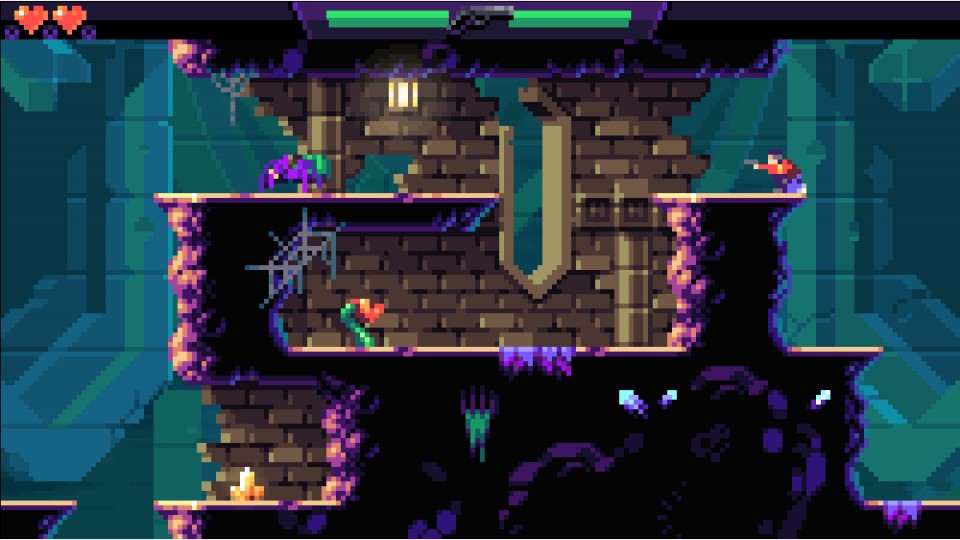
Of course, I also understand the love for the game design of the past, even if the forced jumping on a certain frame, or the forced rigidity in general, often just feels sluggish and boring. I would also have liked a more memorable and vibrant soundtrack that would have elevated the experience as the game's music is unfortunately not very impressive. Unfortunately, the most noticeable limitation of the graphics, apart from the aforementioned darker locations, is our rather dull and anonymous protagonist. There are also some short charming cutscenes I enjoyed and the animations in the game are really top notch. There are a few too many dark caves and other gloomy places where the pixels feel rather flat, although I understand that some environments are included for the sake of variety and challenge. Overall, the graphics succeed best in futuristic and more colorful environments. Lunark has plenty of charm in its pixelated graphics where I especially like how it gives life to things such as a bar adorned with neon signs or other environments where the details come to life. A strange and punishing design choice that feels like a hard blow to the game's otherwise generally successful pace. Sometimes you are forced to redo longer parts which just feels boring, and if you want to take a break during a level to later start the game again, you are often forced back to the beginning.
#Lunark demo trial
The challenge that a jump must be performed at the right moment leads to lots of trial and error, but any frustration rarely lies in the gameplay sequences but rather in a slightly inconsistent system of checkpoints. The movements are not necessarily limited, they just have to be executed with precision. Movements and sequences feel like experiencing a variety of games from the 80s and 90s, which the game obviously approaches with great awareness. Because alongside the pixels there are also game mechanics that really breathe and feel like a tribute to the past.Īnyone who was there at the time will recognize every move Leo can make. Much of the story is traditional, but the fact that the game draws inspiration from so many things makes it all the more charming. In a dystopian future against a background of giant skyscrapers, flying cars and high-tech environments, we find our protagonist Leo, who, under mysterious circumstances, soon finds himself on the run. Lunark introduces itself with a cinematic opening, and continues in the same vein. Lunark is an adventure that pays tribute to its roots and inspirations in an often beautiful and entertaining way, but unfortunately not without its shortcomings. Perhaps most notably, it shows how a strong focus on a simple story and stripped-down game mechanics can be solid foundations for this kind of experience. Created by one-man studio Canari Games and made real by 2824 people via a successful Kickstarter, Lunark is a celebration of many things. It's alive and well there, and Lunark is one of many excellent examples of this.


Anyone who still thinks that pixel graphics are a dying art form hasn't dipped their toes in the indie scene.


 0 kommentar(er)
0 kommentar(er)
